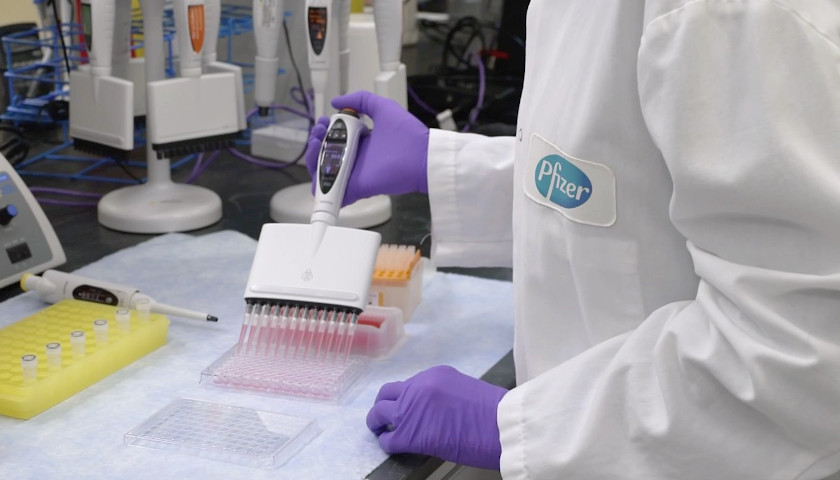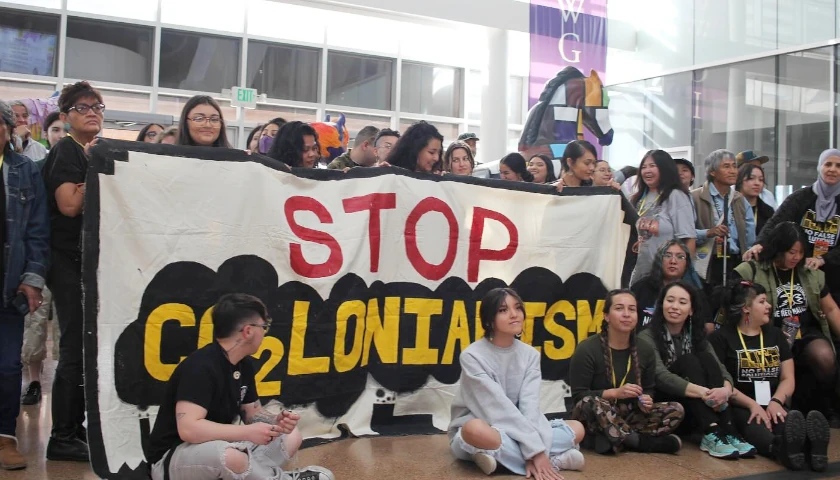by Debra Heine
Pfizer hired 1,800 additional full-time employees in the first half of 2021 to deal with “the large increase” of adverse reactions to its COVID vaccine, newly released secret documents reveal. The Pfizer-BioNTech COVID-19 Vaccine was made available under the Emergency Use Authorization (EUA) on Dec. 11, 2020. By February of 2021, the company was seeing so many safety signals, including in pregnant and breastfeeding mothers, it had to immediately hire 600 employees to process the data.
“Pfizer has also taken a multiple actions [sic] to help alleviate the large increase of adverse event reports. This includes significant technology enhancements, and process and workflow solutions, as well as increasing the number of data entry and case processing colleagues,” the confidential report stated. “To date, Pfizer has onboarded approximately 600 additional full-time employees (FTEs). More are joining each month with an expected total of more than 1,800 additional resources by the end of June 2021.”
Finally got the unredacted version of this FoIA’d document. Three months after the release of the vaccine Pfizer had to hire 600 additional full-time employees, with a plan to hire 1800 total, just to process the flood of adverse events reported. pic.twitter.com/5emJ0s9djl
— Aaron Kheriaty (@AaronKheriatyMD) April 4, 2022
The FDA released 10,000 pages of Pfizer-BioNTech’s COVID-19 vaccine review documents on April 1, pursuant to a court order in January that forced the company to expedite its process of making the information available to the public.
In the court order, U.S. District Judge Mark Pittman of the Northern District of Texas directed the FDA to release approximately 12,000 documents immediately, and then 55,000 pages a month until all documents are released — totaling more than 300,000 pages.
Last month, the FDA released a large tranche of documents showing that the company knew people were at risk of experiencing more than 1,000 unique adverse side-effects to the mRNA injections.
The latest revelations appeared in a document titled, “Cumulative analysis of post-authorization adverse event reports” of the Pfizer-BioNTech vaccine, concerning adverse events identified through Feb. 28, 2021.
The material was previously released in November 2021, but much of the information was redacted, including the number of employees Pfizer said it hired and was planning to hire.
The documents also revealed the number of Pfizer-BioNTech vaccine doses that were distributed throughout the world between December 2020 and February 2021:
“It is estimated that approximately 126,212,580 doses of BNT162b2 [the Pfizer EUA vaccine] were shipped worldwide from the receipt of the first temporary authorisation for emergency supply on 01 December 2020 through 28 February 2021.”
The number of shipped doses was previously redacted.
In the same documents, Pfizer downplayed the adverse reactions.
“Based on Phase 1 data from the FIH Study BNT162-01, BNT162b1 and BNT162b2 [various vaccines tested during the trial period] were safe and well-tolerated in healthy adults 18 to 55 years of age, with no unanticipated safety findings,” the document states.
“Phase 2/3 safety data were generally concordant with safety data in Phase 1 of the study, both overall and with regard to younger and older participants.”
Later in the document, Pfizer provided hard figures on the numbers of adverse events being seen.
“Through 28 February 2021 (data lock point aligned with Pharmacovigilance Plan), there were a total of 42,086 case reports (25,379 medically confirmed and 16,707 non-medically confirmed) containing 158,893 events. Cases were received from 63 countries.
“Consistent with what was seen in Phase 2/3 of Study C4591001, most reported AEs were in System Organ Classes (SOCs) with reactogenicity events: general disorders and administration site conditions (51,335), nervous system disorders (25,957), musculoskeletal and connective tissue disorders (17,283), and gastrointestinal disorders (14,096).
“Post-authorization data have also informed the addition of adverse drug reactions (ADRs) related to the experience of reactogenicity to the product labeling.”
The April 1 document release included “request for priority review” of the documentation Pfizer submitted to the FDA for full licensure of its Comirnaty COVID vaccine in May 2021.
Pfizer described its vaccine as fulfilling an “unmet medical need” in this document, claiming: “Mass immunization with a safe and effective vaccine against COVID-19 can dramatically alter the trajectory of the pandemic.
Pfizer expressed “concerns” about lifting COVID safety measures, such as lockdowns, arguing that the lifting of restrictions would “counteract the impacts of this vaccination effort.”
The document states:
Vaccination against COVID-19 began with EUA/conditional approvals in December 2020, in a phased rollout defined by national/regional guidance.
However, there continue to be concerning trends that may counteract the impacts of this vaccination effort, including:
[L]imitations in access to obtaining a vaccine due to infrastructure challenges (ie, clinic and appointment capacity and systems)
[I]ncreasing viral transmission fueled by relaxed compliance with mitigations as the pandemic surpasses the 1-year mark (ie, masks, physical distancing, limiting travel)
[I]ncreasing circulation of emerging variants of concern (which are currently driving continued spread of viral infection in Europe despite extensive mitigation mandates).”
Pfizer justified its request for full licensure of its COVID vaccine on the following basis:A vaccine program must be implemented expediently and rapidly expanded to have a significant impact on the pandemic course.
Licensure of BNT162b2 is likely to enhance vaccine uptake by facilitating supply of vaccine from Pfizer/BioNTech directly to pharmacies and healthcare providers/facilities.
The greatest impact of BNT162b2 licensure may be direct supply to healthcare providers who serve vulnerable populations such as elderly patients and those who live in rural and underserved communities (ie, individuals who might be unable to navigate the challenges of securing vaccine access using the systems in place for EUA).
Expansion of vaccine via licensure would ultimately improve the prospect of achieving population herd immunity to bring the pandemic under control.
Brian Hooker, chief scientific officer of Children’s Health Defense, told The Defender in a statement:
“The rollout of the Pfizer vaccine has led to an unprecedented number of adverse events reported — 158,000 adverse events in the first two-plus months of the rollout means that the rate of reported AE [adverse events] was approximately 1:1000, with many of the AEs graded as serious. This is based on a denominator of 125,000,000 vaccines distributed.
“It is no wonder that an army of 1,800 individuals was needed to process all of the information.”
Hooker noted the total number (1,205,755) of COVID vaccine adverse events reported to the Vaccine Adverse Event Reporting System between Dec. 14, 2020 and March 25, 2022, now eclipses the total number (930,952) of adverse events reported in the 32-year history of the database.
Stevan Looney, a civil trial and appellate attorney in New Mexico said at the Daily Clout, that Pfizer committed fraud, and compounded the fraud by hiring over a thousand full time employees “to deal with the flood of adverse events that they expected- and yet they told no one about this publicly.”
The Pfizer report states on page 1:
The information contained in this document is proprietary and confidential. Any disclosure, reproduction, distribution, or other dissemination of this information outside of Pfizer, its Affiliates, its Licensees, or Regulatory Agencies is strictly prohibited. Except as may be otherwise agreed to in writing, by accepting or reviewing these materials, you agree to hold such information in confidence and not to disclose it to others (except where required by applicable law), nor to use it for unauthorized purposes.
The next tranche of documents is scheduled to be released on or before May 1.
– – –
Debra Heine reports for American Greatness.
Photo “Pfizer Lab” by Pfizer.





